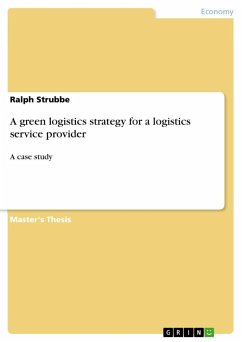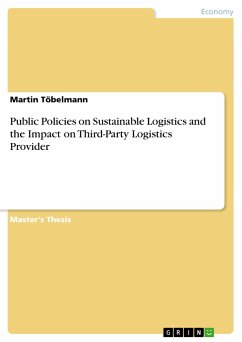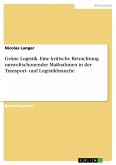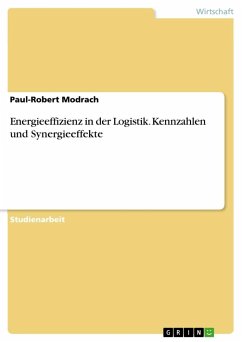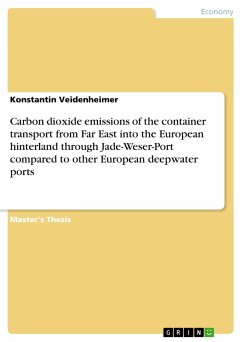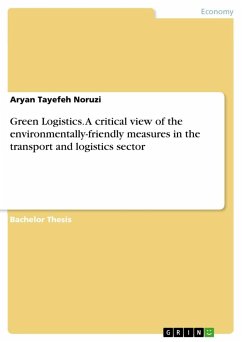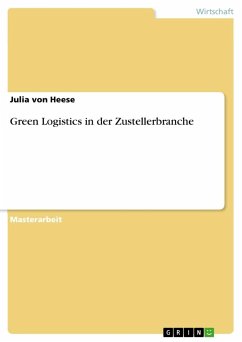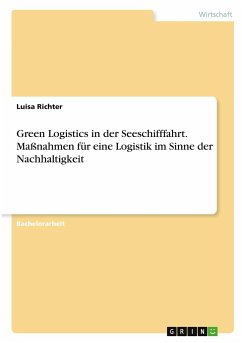Master's Thesis from the year 2013 in the subject Business economics - Supply, Production, Logistics, grade: 1,4, Heriot-Watt University Edinburgh (School of Management and Languages), course: Green Logistics, language: English, abstract: With climate change and global warming being indisputable the world, its people, economy and companies face severe consequences. These can be literally natural disasters, ambitious climate protection goals and tightened environmental legislation for companies. As freight transport is responsible for a significant proportion of man made CO2 emissions it needs to contribute heavily to accomplishing Kyoto Protocol CO2 reduction targets. Besides complying with legislation focusing on sustainable development of logistics can yield further advantages such as cost savings and enhanced reputation.This dissertation is about developing a green logistics strategy for Strubbe as a logistics service provider mainly concerned with freight transport. In terms of freight transport considering green strategies means focusing on managing carbon emissions. As managing without measuring is not possible the first step was calculating Strubbe´s carbon footprint. The energy-based calculation approach revealed TTW emissions of 1,120.39 tonnes CO2e for 2012, equivalent to 0.057 kg CO2e per tkm. Even though this intensity figure is lower than default values it could still be reduced by applying carbon emission reduction measures. These measures needed to be applicable to a freight transport concerned small logistics service provider like Strubbe. The review of potential measures yielded five practically applicable options: use of biodiesel (36.27%), reduction of maximum speed to 80 km/h (2.33%), vertical collaboration (1.88%), aerodynamic profiling (1.7%) and reduction of engine idling (0.41%). Their resprective percentage carbon abatement potentials are displayed in brackets. Further analysis revealed following changes in operating cost, in other words abatement costs: use of biodiesel (+19.24%), reduction of maximum speed to 80 km/h (+3.33%), vertical collaboration (-1.88%), aerodynamic profiling (+0.05%), reduction of engine idling (-0.41%).Due to the highly competitive freight transport market it is recommended that the affected companies strive for weak sustainable development of their operations. Any increase of operating cost should be avoided. Thus only carbon reduction measures which decrease operating cost should be applied. Strubbe should implement all of the reviewed measures except the use of biodiesel.
Bitte wählen Sie Ihr Anliegen aus.
Rechnungen
Retourenschein anfordern
Bestellstatus
Storno

